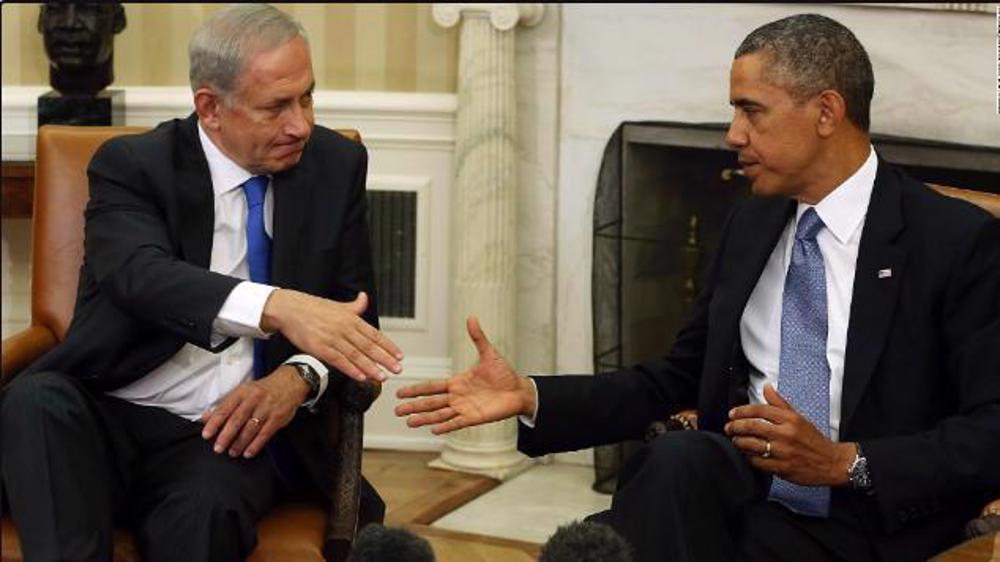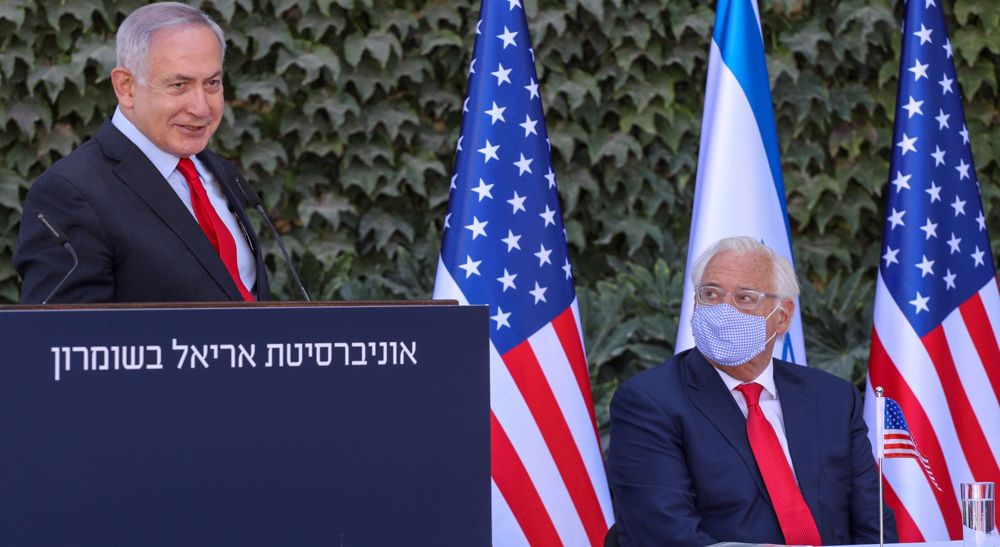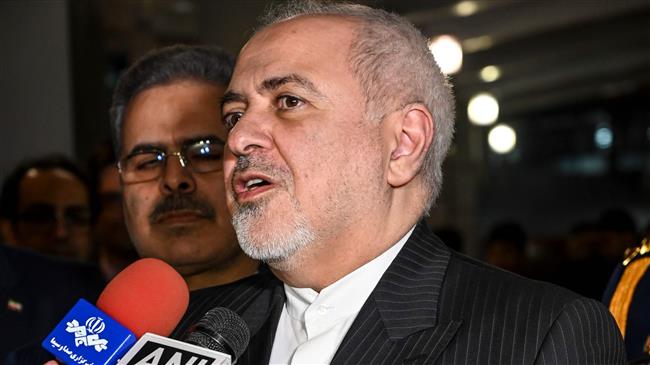Obama reveals Netanyahu’s pressure on his govt., says rifts carried cost
Former US President Barack Obama has accused Israeli prime minister Benjamin Netanyahu of “orchestrating” political pressure on his administration, noting that disagreements with Tel Aviv carried “domestic political cost”.
He made the remarks in his upcoming memoir, A Promised Land, whose excerpts were published on Friday by Jewish Insider, an online newsletter based in Washington.
Obama wrote that American politicians who "criticized Israel policy too loudly risked being tagged as 'anti-Israel' (and possibly anti-Semitic) and [were] confronted with a well-funded opponent in the next election.”
Israel's supporters in the US use accusations of anti-Semitism to stifle criticism of the Tel Aviv regime's policies against the Palestinians, he added.
The ex-US president also wrote in his book, which is part of a two-volume set, that Netanyahu viewed “himself as the chief defender of the Jewish people" and that such vision "allowed him to justify almost anything that would keep him in power".
He further hit out at the pro-Israel lobby, the American Israel Public Affairs Committee (AIPAC), saying that the group moved to the right ideologically to mirror Netanyahu's administration and defended Israel even when its actions "were contrary to US policy".
While congressional Republicans did not care about the Palestinians’ rights, their Democratic counterparts were "worried" about angering AIPAC and losing its support, Obama wrote.
He also stressed that pro-Israel pressure on his administration was "orchestrated" by Netanyahu to remind the US head of state that "normal policy differences with an Israeli prime minister exacted a domestic political cost".
The former Democrat president of the United States further revealed that he faced pushback from his own party when criticizing Israel’s settlement construction activities in the occupied Palestinian territories.
Netanyahu had a fraught relationship with Obama, particularly in regard to Israeli settlements projects and the Iran nuclear deal.
In his last month in office, Obama opted against vetoing UN Security Council Resolution 2334, which pronounced settlements in the West Bank and East Jerusalem al-Quds “a flagrant violation under international law.”
His government also struck the Joint Comprehensive Plan of Action (JCPOA) with Iran and other world powers in 2015.
However, Obama’s successor, Donald Trump, advanced policies that delighted the Israeli premier's right-wing base.
He recognized Jerusalem al-Quds as Israel's “capital,” endorsed the regime’s “sovereignty” over Syria’s occupied Golan Heights and avoided criticizing West Bank settler units.
Additionally, Trump unilaterally pulled his country out of the JCPOA and reimposed the sanctions that had been lifted under the accord. He also imposed secondary sanctions on third parties that sought to do business with Iran, effectively targeting the European parties to the deal.
US president-elect Joe Biden has said he opposes West Bank settlement construction, in line with an international consensus that Israeli structures in the occupied Palestinian lands violate international law. He has further vowed to return to the JCPOA, which Trump abandoned in May 2018.
‘All wars have rules. All of those rules have been broken’ by Israel
VIDEO | Report flags India’s violation of rights of Rohingya detainees
Turkey's foreign minister meets Syria's de facto leader in Damascus
'Next to impossible' to rescue patients from Gaza's Kamal Adwan Hospital: Director
VIDEO | Vietnam current prosperity
Report blames gasoil exports for shortage at Iranian power plants
VIDEO | Hind Rajab Foundation names Israeli war criminals vacationing after Gaza genocide
VIDEO | Australians rally for Gaza ahead of Christmas festivities


















 This makes it easy to access the Press TV website
This makes it easy to access the Press TV website